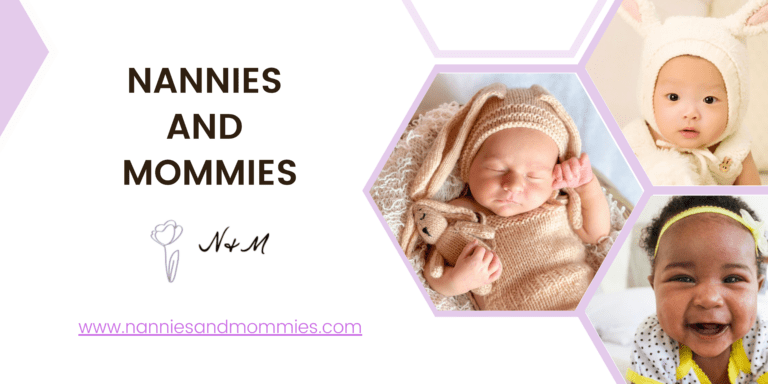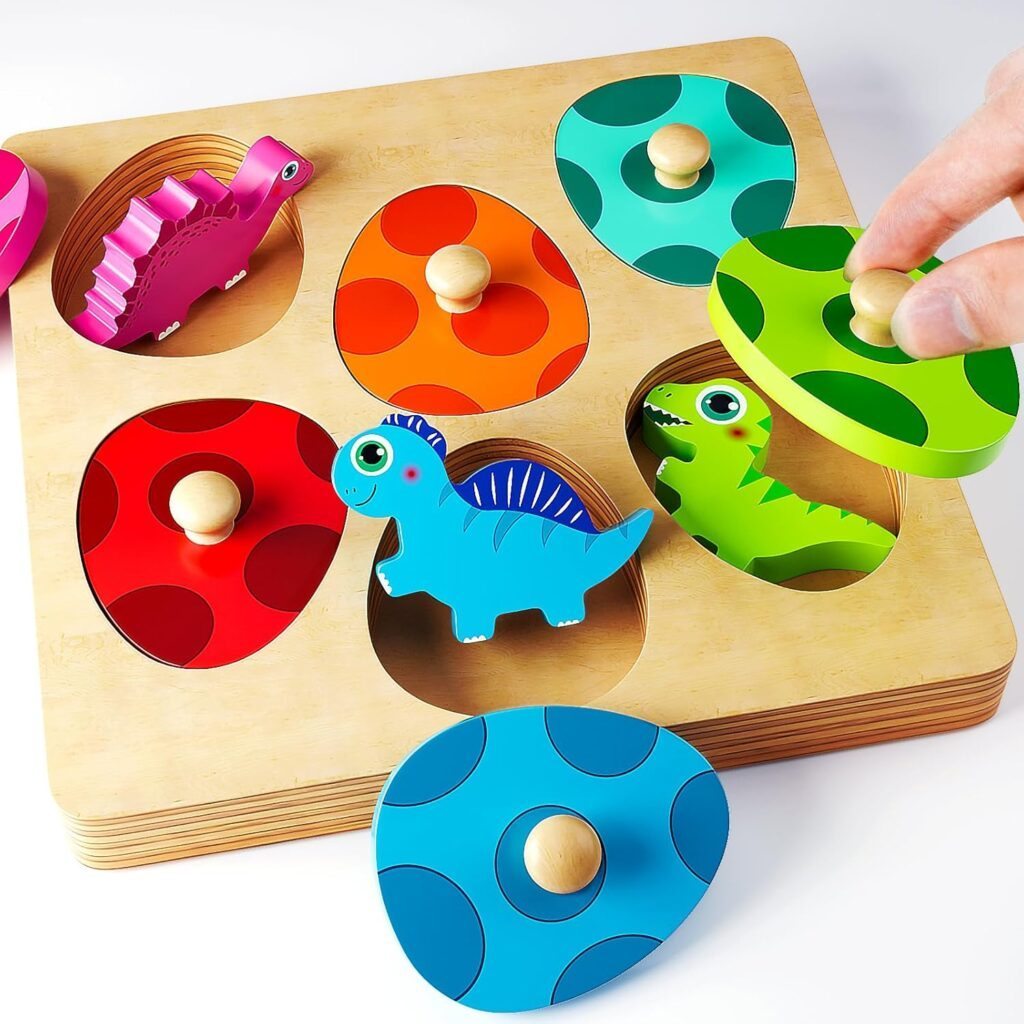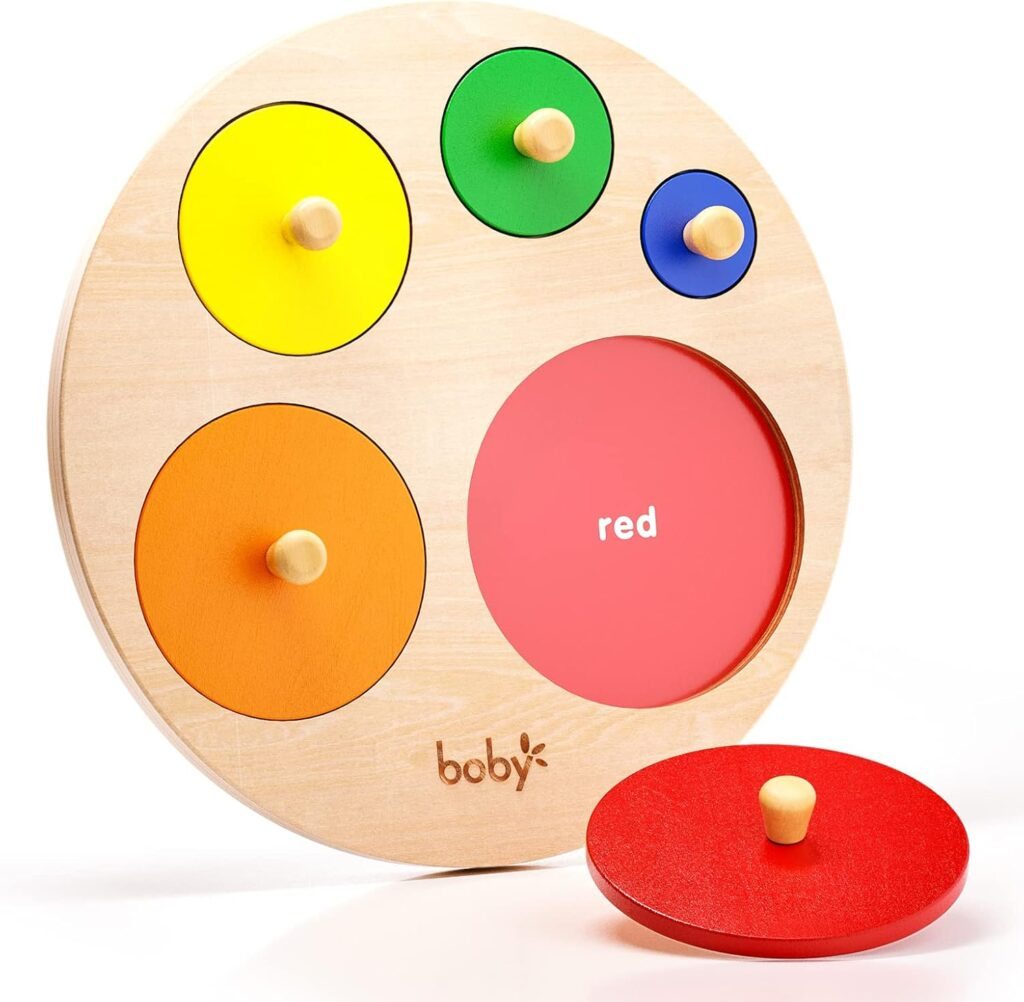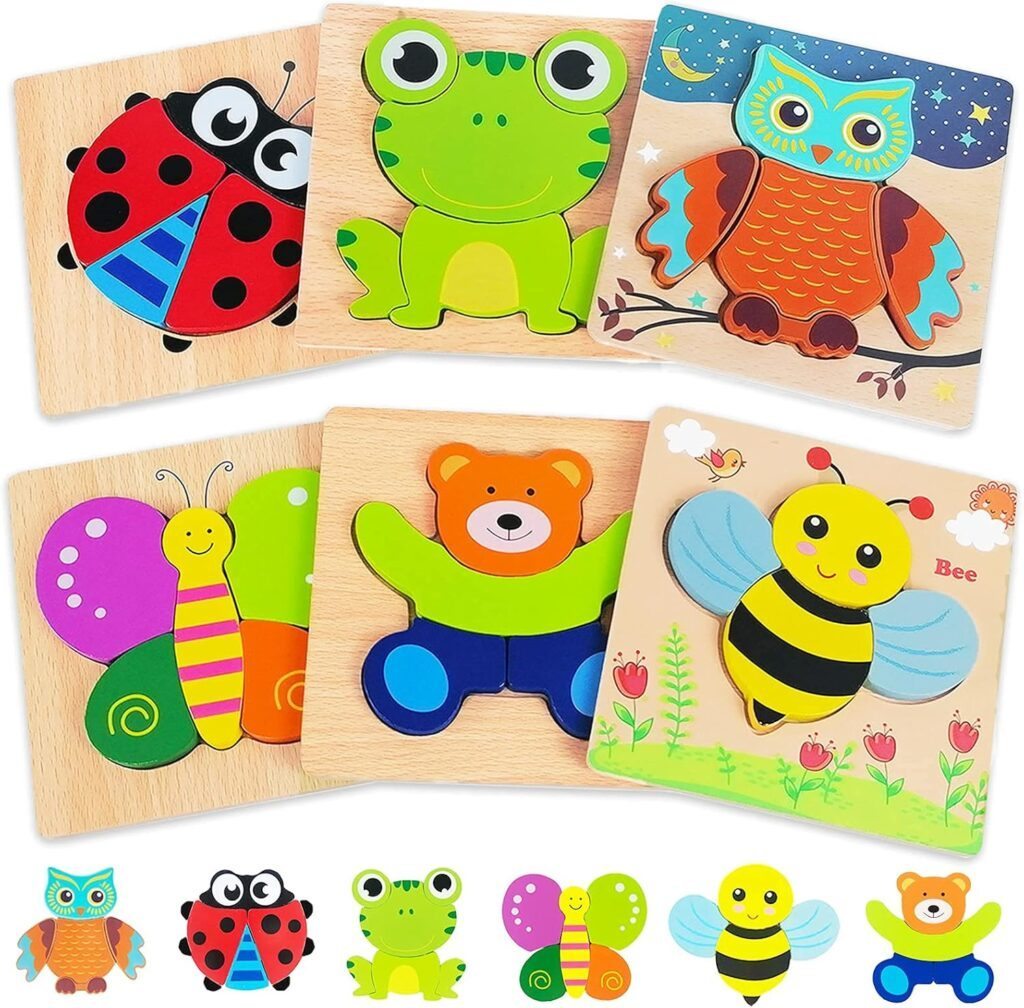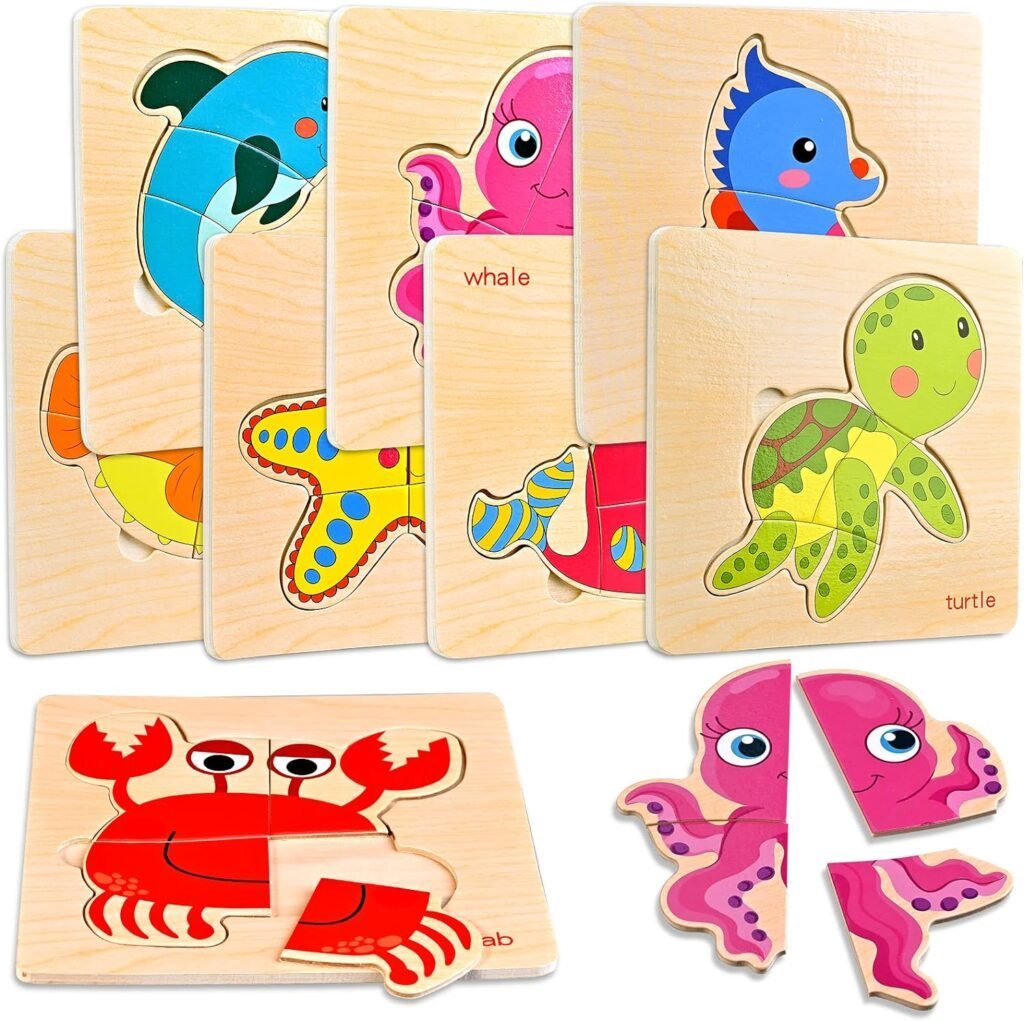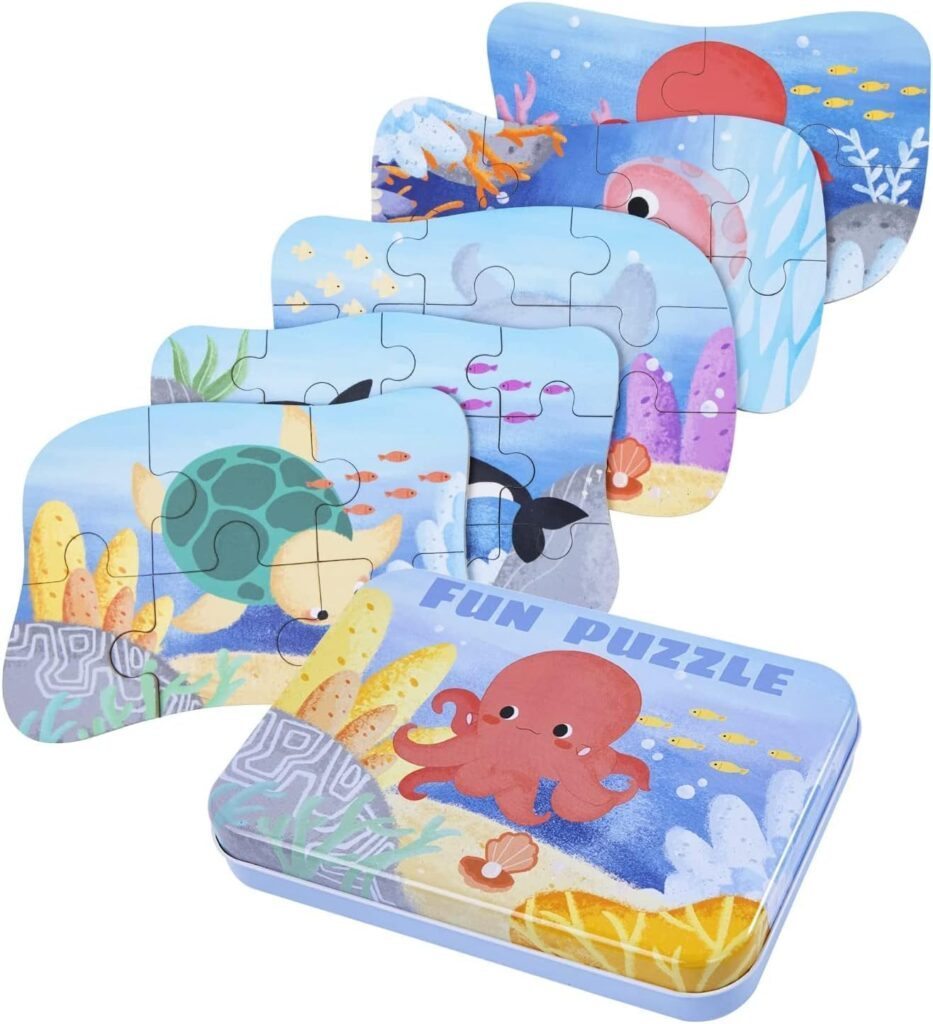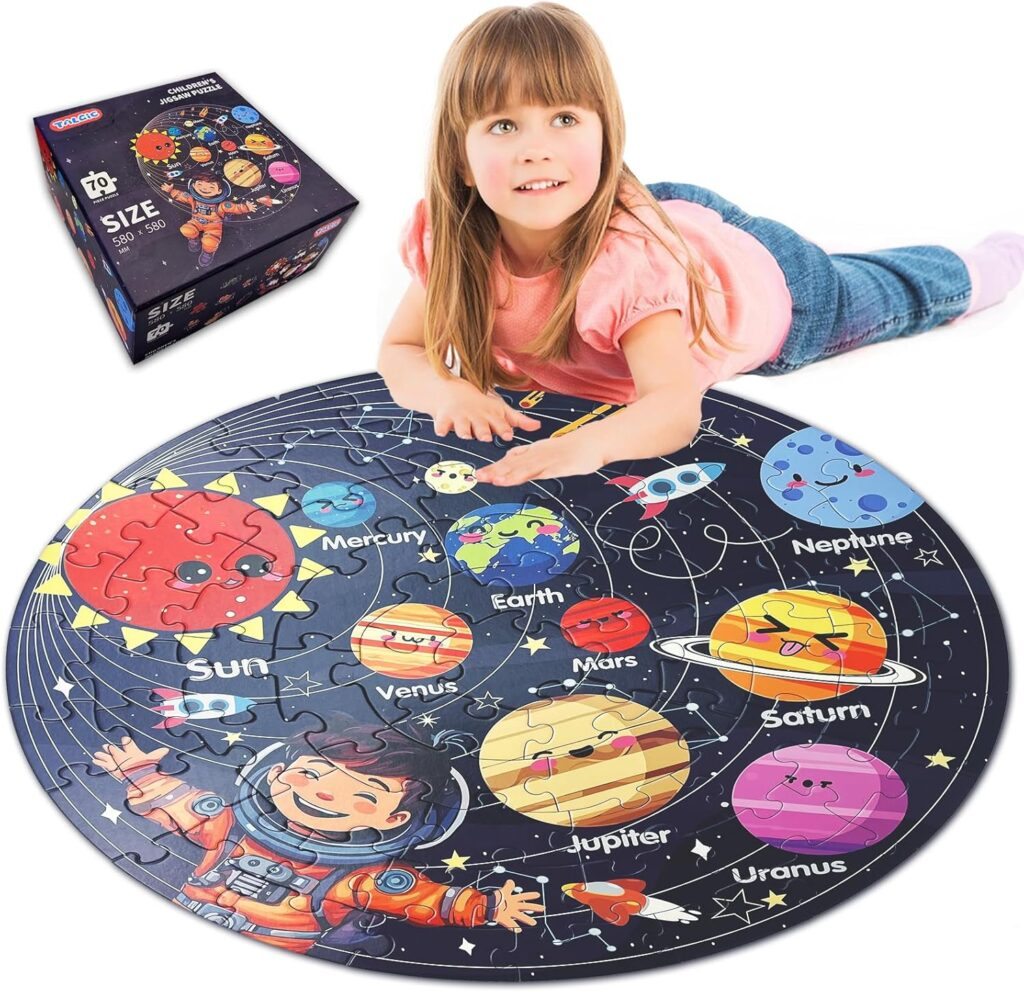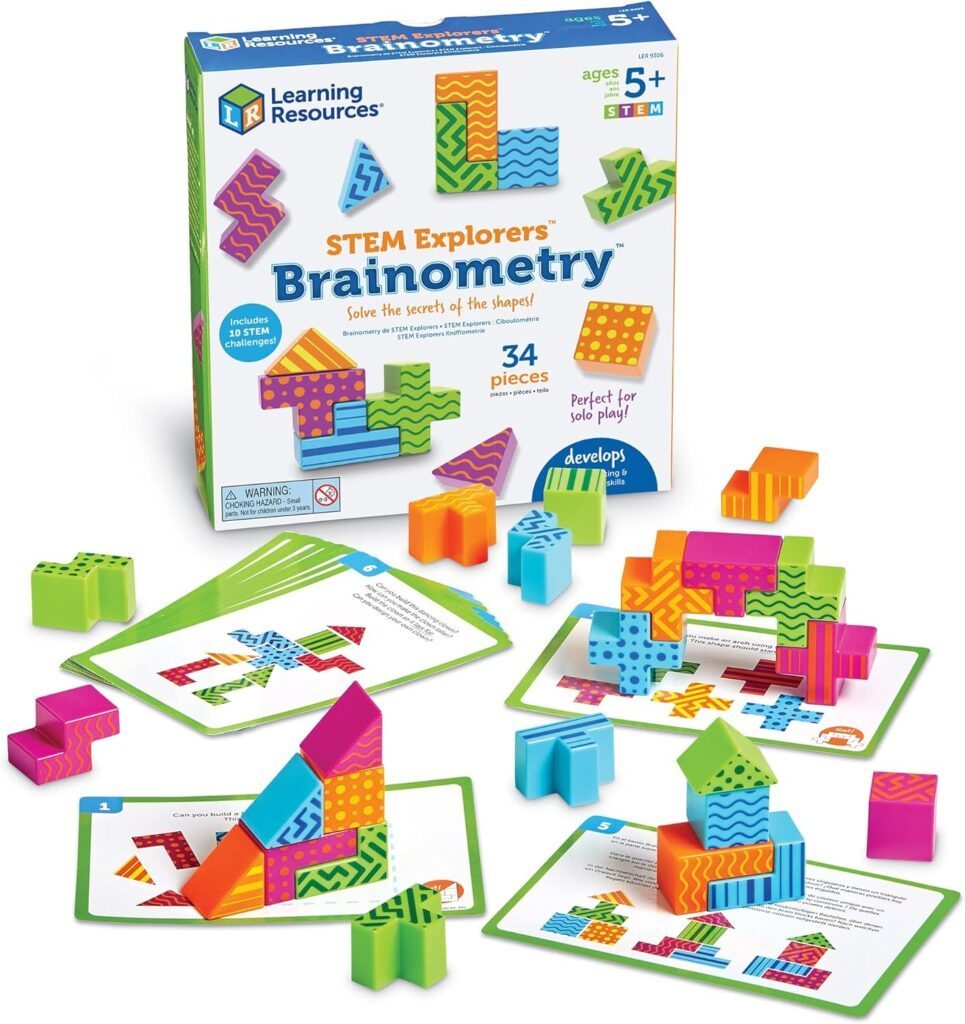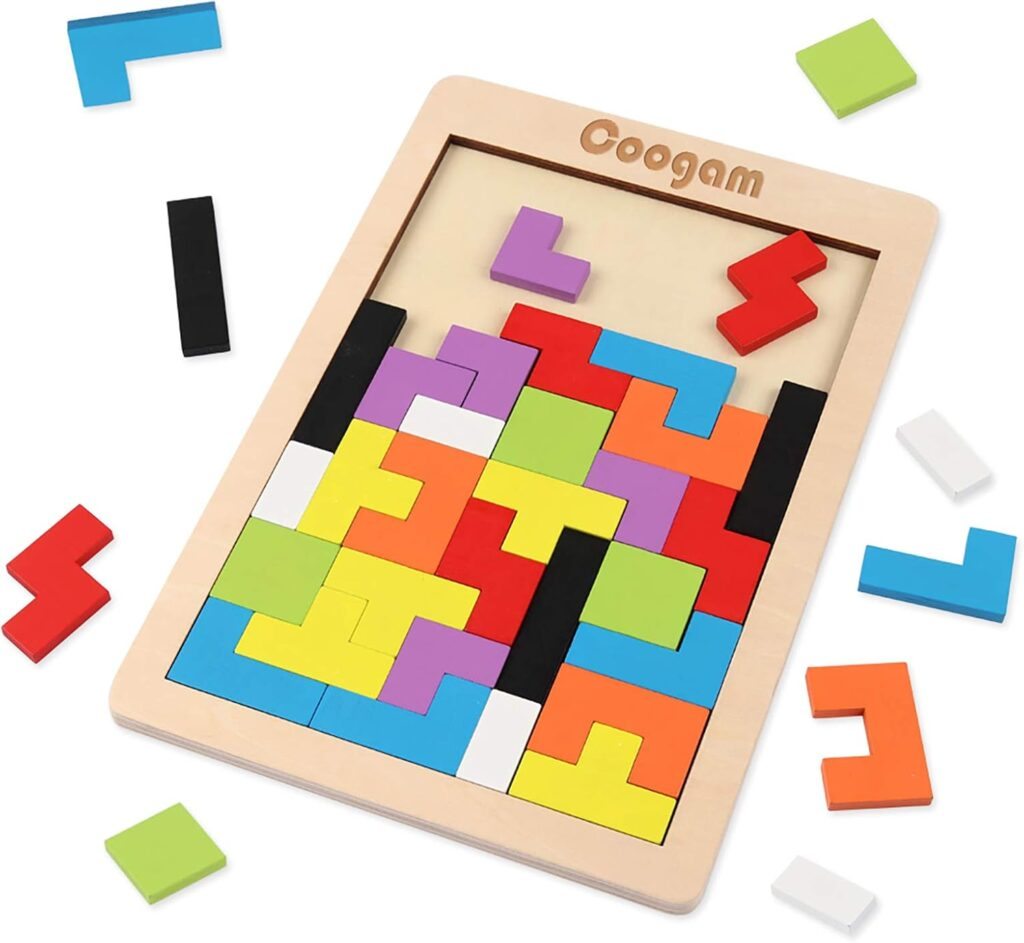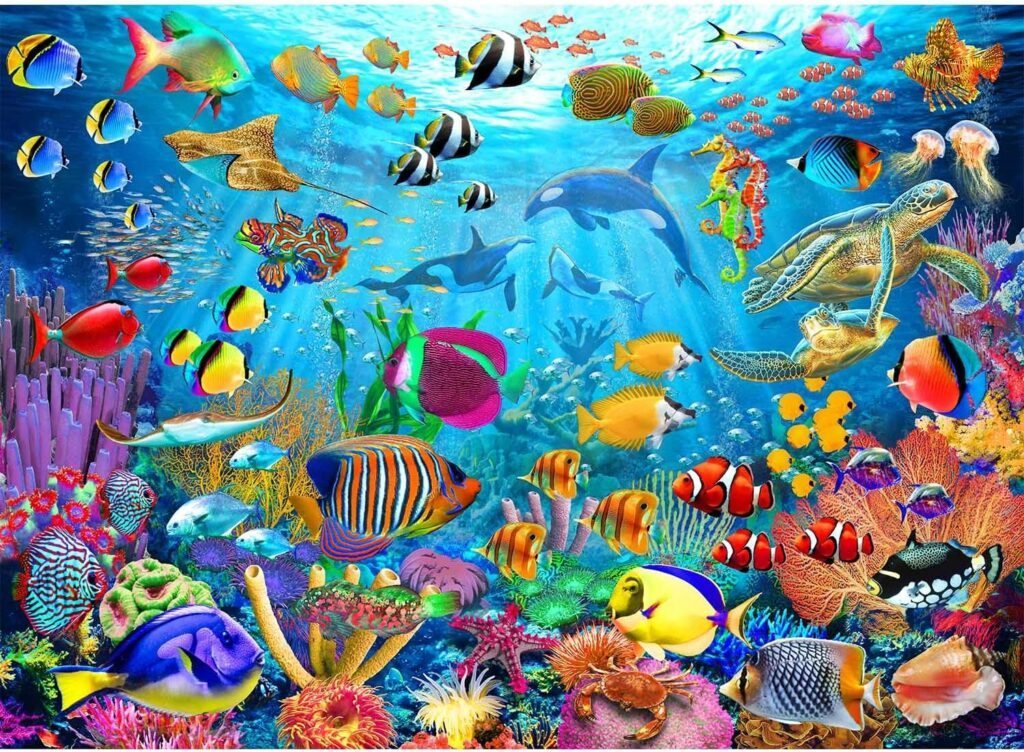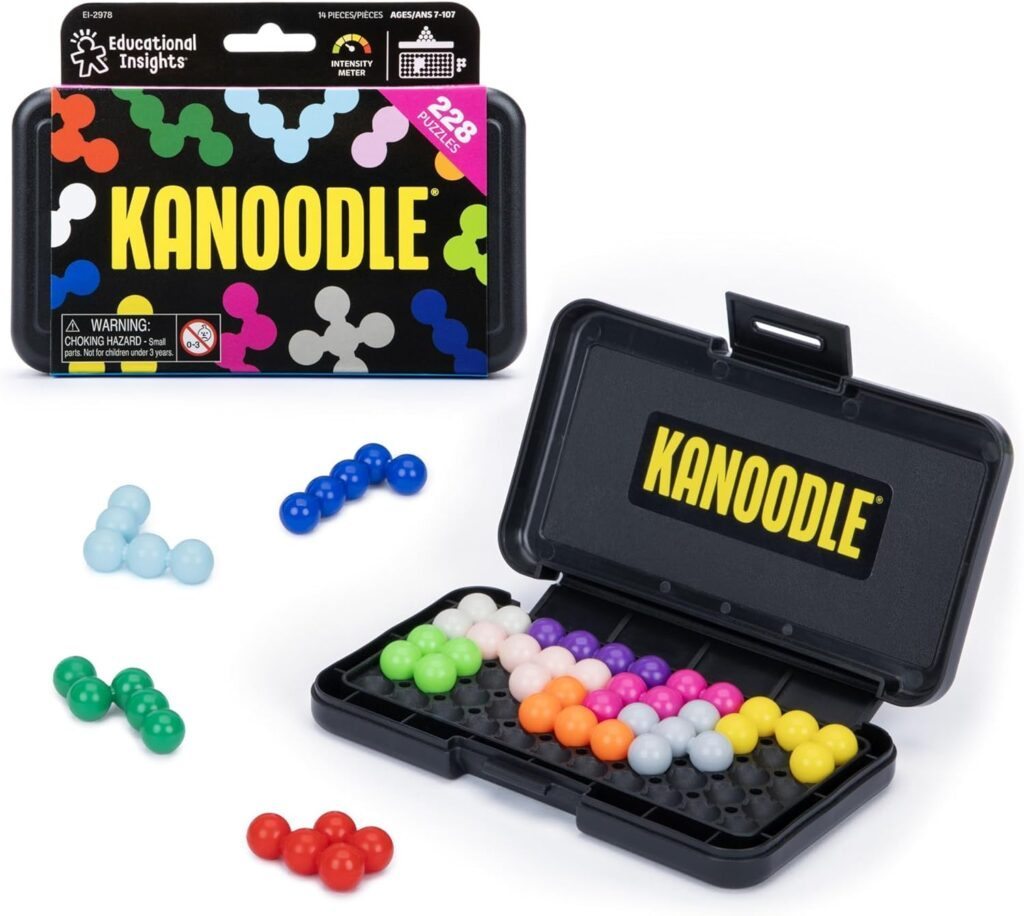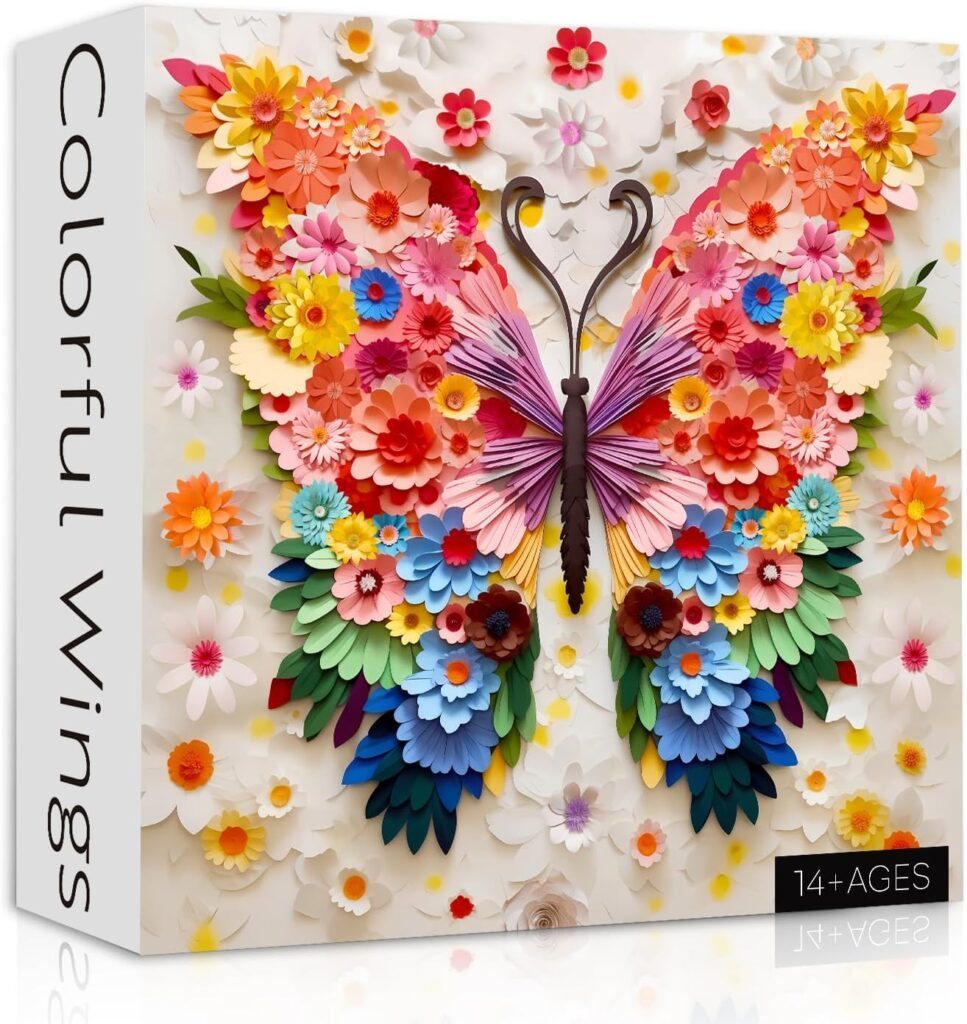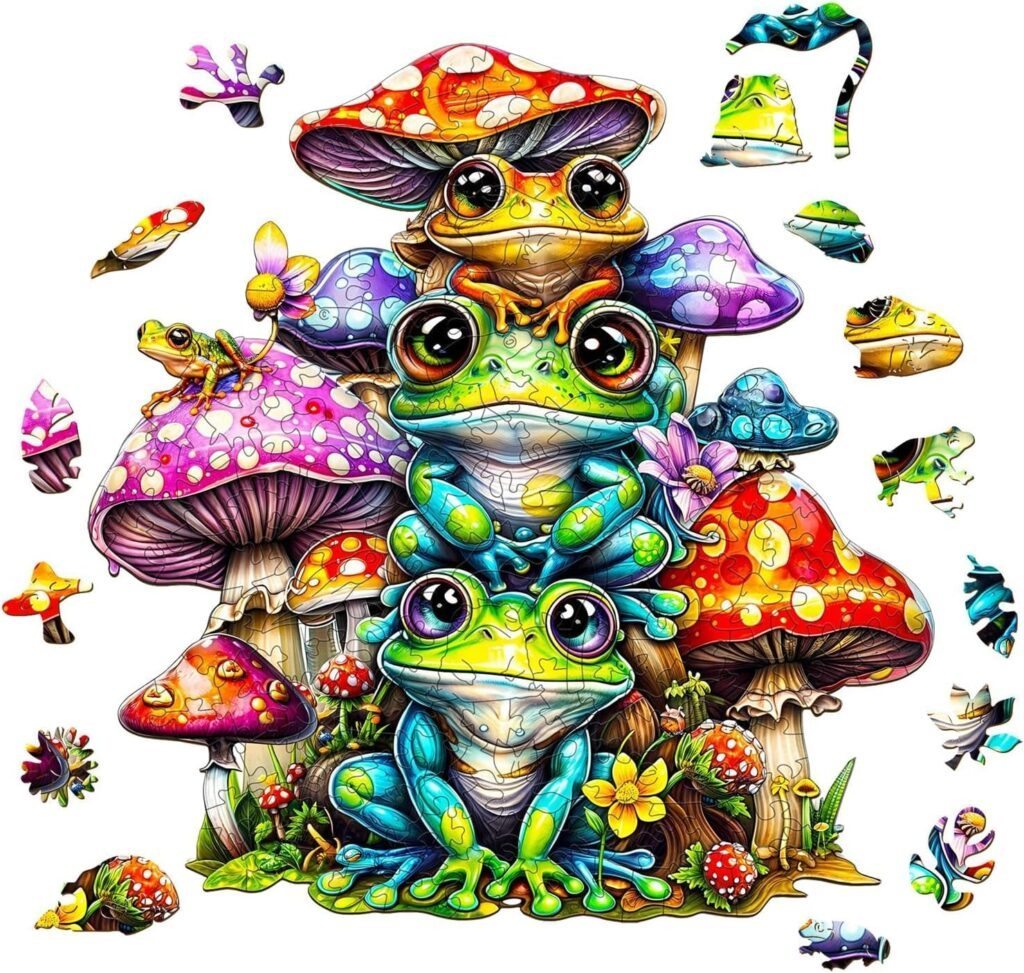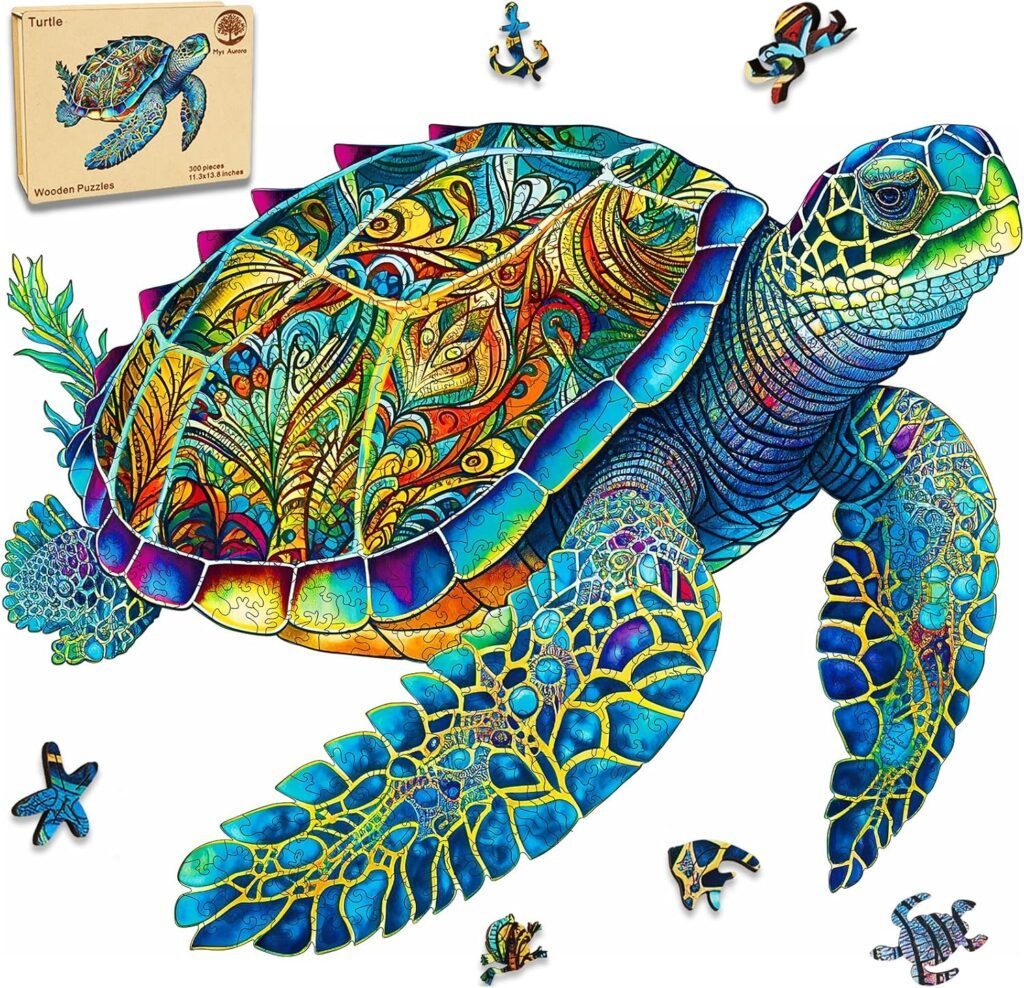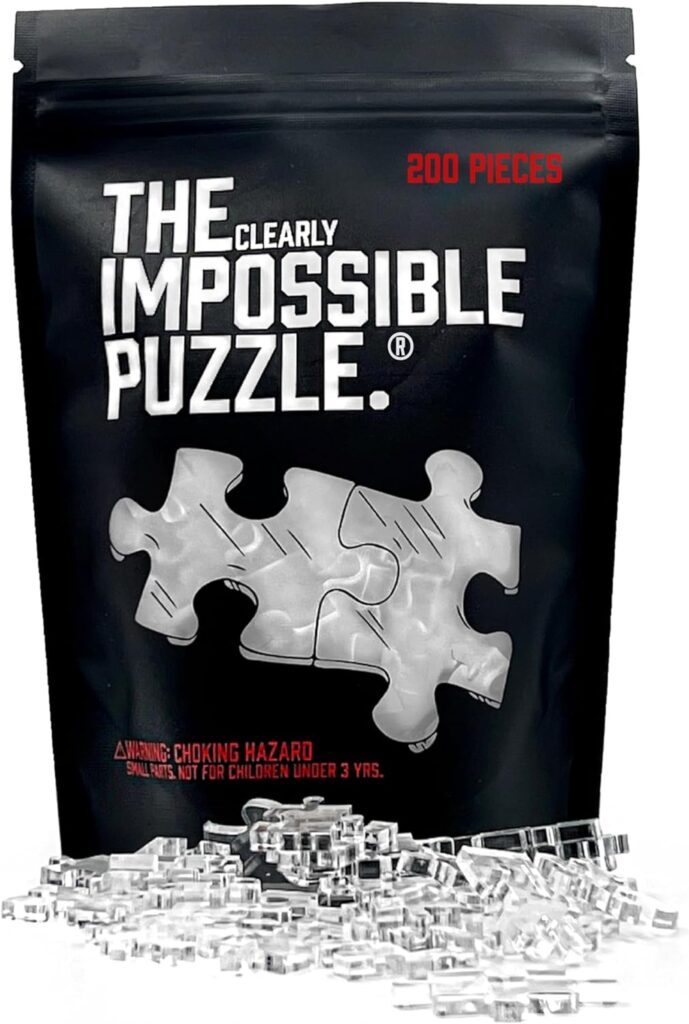Puzzles for kids aren’t just a fun pastime; they are powerful tools for cognitive growth in children. From toddlers mastering their first simple jigsaw to older children tackling intricate 3D puzzles, this engaging activity offers many benefits.
12 – 24 Months Old
Use around 3-10 pieces puzzles for babies. These chunky, colorful pieces are easy for little hands to grasp and manipulate, helping to develop fine motor skills. Use puzzles with a different, easily recognizable shape, such as a circle, square, or star, making them perfect for learning about shapes and colors. A great way to introduce young children to the world of learning and play.
Enhanced Cognitive Skills, puzzles sharpen problem-solving, critical thinking, and spatial reasoning abilities.
2 – 4 Years Old
Introduce more complicated puzzles that help develop fine motor coordination, hand-eye coordination, and problem-solving. Many puzzles also encourage language development by introducing colors, shapes, and animal names, while sparking imaginative play as children create stories around the completed scenes.
Improved Fine Motor Skills: The intricate movements required to manipulate puzzle pieces refine dexterity and hand-eye coordination.
4 -6 Years Old
As children grow, their cognitive abilities expand, and they are ready for more challenging puzzles. Puzzles for 4-6 year olds typically range from 12 to 48 pieces, offering a greater level of difficulty and complexity. These puzzles often incorporate educational elements, such as the alphabet, numbers, and simple words. They may also feature themes like animals, vehicles, or everyday objects, making learning fun and engaging. Puzzles at this age continue to develop fine motor skills, problem-solving abilities, and spatial reasoning. They also foster a sense of accomplishment as children successfully complete more challenging tasks.
Boosted Confidence: Completing a puzzle, especially a challenging one, fosters a sense of accomplishment and boosts self-esteem.
6-8 Years Old
By age 6-8, children are ready for a significant increase in puzzle complexity. Puzzles at this stage typically range from 48 to 200 pieces, demanding greater focus and spatial reasoning skills. Themes may include geography, history, or more intricate scenes from nature or everyday life. These challenges not only enhance cognitive development but also foster a sense of accomplishment and pride as children successfully complete these more demanding puzzles.
Increased Patience and Persistence: Puzzles teach children the value of perseverance and the importance of staying focused on a task.
8+ Years Old
For children aged 8 and above, puzzles can become a captivating and intellectually stimulating activity. These puzzles 200+ , and more challenging puzzles. Stimulate their mind with advanced difficulty.
Teen and Adults
Teen and adult puzzles for a mental escape. From detailed landscapes to complex 3D models, these puzzles demand focus, strategy, and attention to detail. Puzzles offers benefits like reduces stress, and sharpens cognitive skills.
Disclosure: We use affiliate links to earn a small commission. If you choose to purchase something through one of these links, there is no cost to you.
